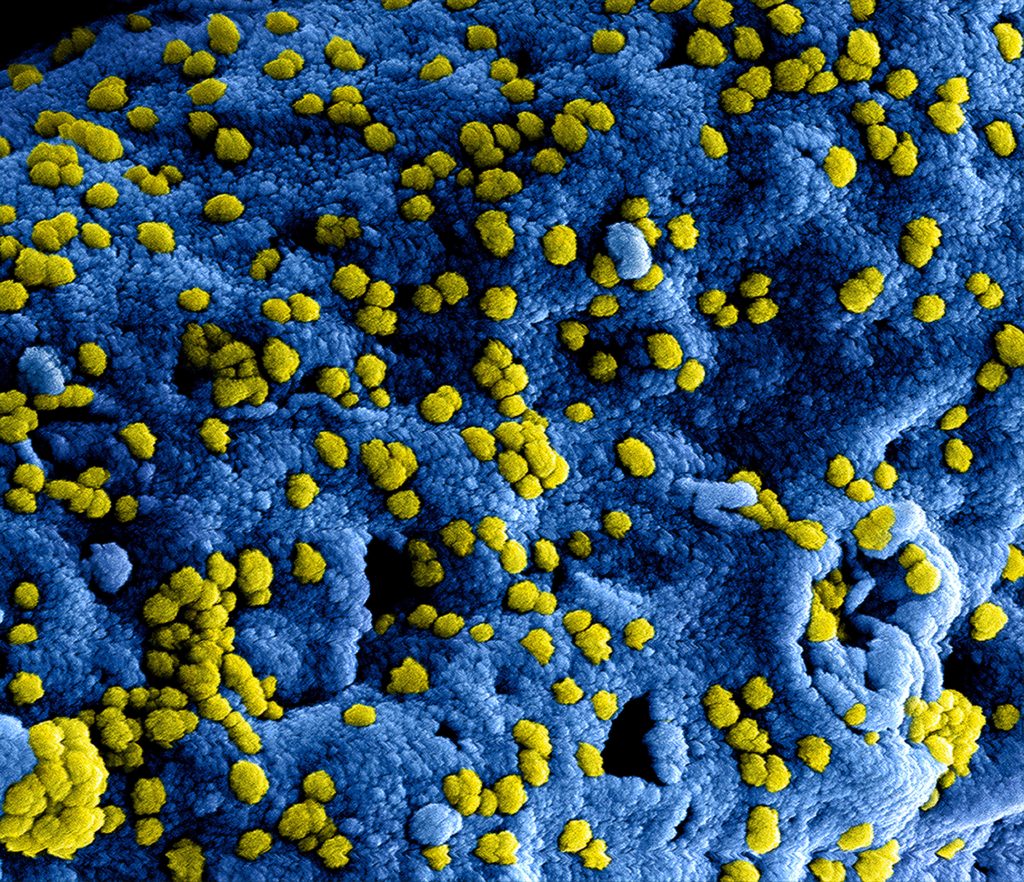Diet

This is my longest post. Diet is a controversial subject with many opinions. Your diet, digestion and metabolism may not be the most important factors contributing to your health or lack of health, but they affect every aspect of your life. I hope you find it helpful.
Diet and Digestion: Your Body and Its Health
Food is not just calories that you put in your mouth. It is information and medicine. It turns your genes on and off. Food influences your hormones, immune system, brain chemistry, microbiome, detoxification and structure. It provides phyto(plant) chemicals that are anti inflammatory and antioxidant which are medicinal. Your food needs to be a clean source of protein, fiber, healthy fats as well as some whole food, nutrient dense carbohydrates that do not make your blood sugar and insulin levels too high.
Your body starts with two cells and the genes which come from Mom and Dad. Your genes are only blue prints that must be read and interpreted correctly for growth and repair. This means that epigenetic influences (above the genes such as your diet, lifestyle and environment will determine how your genes are read and how your body responds.. The rest of your body comes from the air you breathe, the water you drink and the food you eat. Like computers, it is garbage in, garbage out. The food, water and air that you consume must have the chemicals necessary to build and repair your body without being toxic. Call this.your diet. Additionally, you must be able to extract the beneficial materials and eliminate what is not needed. Call this your digestion. Finally you need a coordinated metabolism, based on two way communication between organ systems, to put everything together so that your cells, tissues and organs do their best to make a healthy body that ages well.
Digestion and metabolism can be compromised by inflammation, hormone dysfunction and gut dysbiosis, which is the breakdown of the mutualistic relation between your gut bacteria, their metabolic products and your immune system. There is a bidirectional relation between these issues and the food you eat affects all three which complicates the choices that you must make to have your optimum health.

Inflammation
Inflammation is like having a fire in your biological terrain. The fire can be started by nutritional deficiencies, caloric excess (in the form of high glycemic-sugar producing) or certain other foods (mainly processed or poorly digested foods}. A small fire put out quickly permits healing to occur with the least effort. A fire that continues as chronic inflammation contributes to almost all diseases Inflammation in the digest tract (mouth to colon} will spread throughout your responses return to normal function.. All infection causes inflammation. Red, bleeding gums are infected and inflamed. Other sources of inflammation include emotional stress, physical trauma, and environmental toxins..
It starts as a call for help by the cells of our body when they are not happy. They release inflammation causing chemicals. The signs of inflammation are: pain, swelling, redness and heat. Usually, it takes 8-10 days to resolve and helps prevent infection and while healing occurs. This is a normal process and is beneficial. Inflammation must be regulated; otherwise we can have too much or too little.
- Too much inflammation can lead to: autoimmune disorders, fibromyalgia, chronic fatigue, atherosclerosis, ulcers, obesity, sinusitis and allergies.
- Too little inflammation can lead to infection and cancer.
- Additionally, inflammatory chemicals also cross the blood brain barrier inflaming brain cells. This can contribute to headaches, seizures, depression, dementia, increased sensitivity to pain, and many cases of autism.
(mainly processed or poorly digested foods}. A small fire put out quickly permits healing to occur with the least effort. A fire that continues as chronic inflammation contributes to almost all diseases Inflammation in the digestive tract (mouth to colon} will spread throughout your body. All infection causes inflammation. Red, bleeding gums are infected and inflamed. Other sources of inflammation include emotional stress, physical trauma, and environmental toxins. These sources must be removed for healing to occur..

Hormones
Hormones are one way the organs communicate with each other. Hormones regulate metabolism, growth rate, healing, fat storage, fat burning, sleep and mood. They provide messages to receivers on your cells that call your cells to action. The receivers can be blocked by other chemicals called hormone disruptors that are contained in the foods you eat or their packaging such as plastic bottles. The receptors can be shut down by your cells as a protective mechanism or in response to changes in their environment.The hypothalamus in the brain produces several hormones that control the production of many other hormones. The liver is responsible for breaking down hormones. Inflammation and dysfunction in these can set off a cascade of miscommunication which leads to many possibilities of diseased conditions:
- Insulin is produced in the pancreas as a response to elevated blood sugar . It facilitates getting sugar into cells. Too much blood sugar can cause the cells to resist taking on more leading to metabolic syndrome and diabete. Eventually fat cells will become sick and release inflammatory chemicals and the beneficial hormones they produce will become disrupted. It is also involved in converting thyroid hormone to its usable form.
- Cortisol is produced in the adrenal glands. It influences blood sugar, blood pressure, thyroid function and inflammation. It is released as a stress response, it should reach its highest level in the morning after waking and should reach its lowest level before sleep..
- Estrogen and testosterone are sex hormones that have an effect on metabolism, fat storage and muscle mass.They require a balance and are influenced by insulin.
- Leptin, ghrelin, glucagon, adiponectin and epinephrine play roles in your appetite and fat metabolism depending on your activity and dietary habits.
This is just a sample of your body’s hormones, their functions and the.interrelationships that influence your health

Microbiome
The microbiome is all the microscopic organisms that live on you. Technically, your digestive tract is a hollow tube where the intestines have only one cell layer that separates outside you from inside you and your immune system. There are about 10 times as many bacterial cells on your body and 100 times your genetic material. A diverse population of friendly microbiomes. promotes good health. They are your first line of defense, promote digestion and provide essential nutrients. Maintaining diversity in your microbiome requires a diversity of prebiotic foods, probiotic fermented foods and having contact with the soil. Probiotic supplements can be helpful, but are not a substitute for natural sources.
- Prebiotic foods include garlic, onions, green bananas, broccoli, asparagus, berries, root vegetables and apples. These are sources of soluble and insoluble fiber as well as digestive resistant starches and valuable nutrients. . Using organic to reduce your exposure to hormone disrupting chemicals and possible toxins using many colors of prebiotic foods to provide a variety of additional nutrients.
- Probiotic foods reseed the microbiome with beneficial bacteria which can change daily and easily become imbalanced by stress, diet, medication and environmental toxins. Organic grass fed yogurt and kefir (also a source of healthy fats), fermented vegetables such as sauerkraut, kimchi, and pickles (these are refrigerated and contain water,salt, possibly spices and no vinegar). A drink made from fermented tea called kombucha is also a source..
Please remember whatever goes in your mouth affects your microbiome. If your microbiome is not healthy you will not be healthy.

Digestion
Healthy eating requires healthy digestion to maintain your physical health. .The digestive system requires more energy to do its job than any other body system. Disease in any part of the digestive system from mouth to colon can be either a symptom of disease or a contributing factor to disease in another part. Every part of the digestive system contributes to the body’s health and maintenance.
We must chew our nutrient rich food completely and mix it with saliva to start breaking it down. The saliva should be in adequate amounts and have a pH of 7.0-7.4 (which is alkaline). This healthy saliva provides an environment for friendly bacteria rather than disease causing bacteria. Healthy saliva aids in the replacement of lost minerals from the teeth during eating and drinking. The stomach acid (HCL) breaks down food more, kills unwanted bacteria, and prepares some minerals such as calcium for use. It is important to not dilute stomach acid by drinking liquids with meals. Drinking one half hour prior to eating is much healthier for the digestive process. The small intestine should be relatively sterile (may be a few friendly bacteria). It further breaks down food with enzymes from the pancreas, emulsifies fats with bile and allows the needed nutrients to be ready for transportation to the body’s cells, while preventing unwanted wastes from getting out into the body, a large part of the immune system”s work. The large intestine (colon) aided by friendly bacteria recycles usable material and eliminates waste. The friendly bacteria produce some vitamins our body needs, provide nutrients to cells lining the intestine, and creates a protective layer for them. .
Stomach and intestinal problems such as: Indigestion, GERD, Irritable Bowel, Crohns, and Ulcerative Colitis can prevent normal digestion from occurring and increase the risk for many other diseases. This may include cavities and gum infection. Diets too high in protein and refined carbohydrates are not only difficult to digest, but also can make our mouths more acidic, which creates a better environment for unhealthy bacteria which are not killed by the stomach acid. Food sensitivities, which may include gluten, wheat, dairy, eggs, and nuts, can irritate the digestive tract causing Leaky Gut. This is when waste products, bacteria, and toxins leak out of the gut and into the body instead of being eliminated from the large intestine. An overgrowth of bacteria in the small intestine and stress can also contribute to Leaky Inflamed Gut, its associated Leaky Brain Blood Brain Barrier and an inflamed brain. .
Symptoms of Leaky Gut may include the following: abdominal pain, excessive gas, bloating, nausea and vomiting. Diseases associated with Leaky Gut/Leaky Brain include: ADHD, arthritis, asthma, autoimmune diseases, celiac, chronic fatigue, depression, dermatitis, eczema, brain fog, fibromyalgia, memory problems, multiple chemical sensitivities, psoriasis, sinus problems, and yeast infections.
It is important to be aware that the health of the digestive tract from the mouth to the colon should not be viewed and treated as separate parts. Dysfunction in one part of the digestive system can contribute to disease throughout the body. A comprehensive approach to health of the teeth and gums should include personal hygiene, diet, and mental stress reduction techniques. Understanding this and making the necessary lifestyle changes not only lead to a healthy smile, but also to a healthy rest of us.

Nutritional Supplements
Vitamins (organic substances made by plants and animals) and minerals (inorganic substances that come from soil and water) are the micronutrients necessary for the body’s chemical reactions responsible for growth, repair, and healing. These are my recommendations for supplements:
1. Multivitamin with B complex (B1, B2, B12), and vitamins A,D,E,K. It may be necessary to increase vitamin A to 10,000 IU and D3 to 4000-5000 IU per day.
2. CoEnzymeQ10 100mg/day
3. Essential fatty acids to balance (omega3, omega6, omega9) with two omega3 to one omega6. For omega 3 fatty acids, use high quality refrigerated form of flaxseed or fish oil. Flaxseeds can be soaked (6 hours) or ground fresh in a coffee grinder. Omega 3 fats are needed for calcium utilization and are anti-inflammatory.
4. Minerals should include: calcium citrate 1500mg, magnesium citrate/malate 750mg, and potassium citrate 4000mg per day.
5. Zinc, copper, iron and manganese need to be in balance. You need professional guidance.
Poor Digestion: Heartburn (Gastritis) and Acid Reflux (GERD)
Acid Reflux happens when stomach acid flows into the esophagus and sometimes into the mouth or even the lungs if the acid is aspirated. Symptoms can be chest pain, difficulty swallowing, chronic cough, laryngitis, lump in the throat, irritation of asthma and disrupted sleep. It can also cause damage to the teeth. Common triggers or causes can be:
- Low stomach acid
- High stomach acid
- A weak cardiac sphincter that is supposed to close and prevent the stomach acid from backing up when it is functioning properly. Adequate stomach acid will initiate it to close.
- Microbial overgrowth in the small intestine, SIBO, will cause the normal muscular action that moves intestinal contents correctly(migrating motor complex) to dysfunction and cause them to back up.
Steven Horne article on SIBO
https://modernherbalmedicine.com/articles/small-intestinal-bacterial-overgrowth-(sibo).html
- Physical pressure due to obesity, pregnancy, hiatal hernia ( where part of the upper stomach protrudes through the diaphragm preventing the cardiac sphincter to dysfunction. See Steven Horne articles on hiatal hernia:
Exercise or laying down after a large meal, It is wise to eat only to only about ⅔ fullness of the stomach.
- , Sluggish digestion which may include low stomach acid.
- Food sensitivities
It is important to remember that digestion begins in the mouth. Chew your food well to liquid state in order to break it up and thoroughly mix with saliva. Eat in a relaxed mental state and physical enviRonment. Do not eat when you are angry or upset! Express gratitude for your food and practice slow deep diaphragmatic breathing. Avoid processed foods or any food that you know upsets your digestion. Listen to your body to tell what agrees and what does not
Low Stomach Acid
Low stomach is the most common trigger. Common causes are:
- Acid reducing medications whether over the counter or prescription PPI.
- Stress
- Age
Low stomach acid can reduce absorption of vitamin C and B12; minerals such as iron, calcium and magnesium. This can lead to conditions such osteoporosis, food sensitivities and nerve issues. Stomach acid is necessary to kill pathogens leading to respiratory infections and gut dysbiosis which increases the risk of SIBO and C difficile. The resulting poor digestion is linked to leaky gut and the associated leaky brain causing autoimmune diseases and brain inflammation which can affect mood and memory.
Avoid drinking too much with meals as this dilutes the HCL produced by the stomach. Drink your water between meals and not less than ½ hour before. Consider taking digestive bitters before a meal or eating bitter greens such as parsley, kale or arugula to stimulate production of stomach acid. Sometimes taking a tsp of apple cider vinegar or lemon juice can be helpful. Supplementing with betaine HCL with pepsin may be helpful. See the information on digestion on my website. If supplementing with acid causes problems, it may be an indication that you have too much acid. Limit your protein intake to a minimum since it requires more stomach acid to digest. Before supplementing you can test for low stomach acid by taking a teaspoon of baking soda in 8 oz of water. You should burp within about 2 minutes. If you do not, you are probably low.The HCL challenge test can be used to determine the need for HCL. Take one 400-500mg Betaine HCL with an enzyme, pepsin, capsule in the middle of a meal. Increase by one capsule until a mild burning is noticed. If one or two capsules cause burning you may have parasites (SIBO) causing acid reflux and professional guidance is needed. .
Gastric Damage (Gastritis) and or High Stomach Acid
This can be caused by overuse of NSAIDS such as ibuprofen and naproxen, PPI rebound and alcohol and coffee consumption. Symptoms include burning in the stomach and feeling worse after consuming acidic, spicy foods, coffee, alcohol, excess meat/ protein or fat.
Treatment approaches include
- Mucilaginous (slimy) herbs such marshmallow, Fenugreek and DGL licorice
- Vulenary (healing) herbs such as Plantain, Calendula and Comfrey
- Consuming Flax and Chia seeds soaked in water overnight, oatmeal/oat milk
- Eat more green vegetables, bland foods, complex and high fiber carbohydrates, and drink cabbage juice or aloe vera juice from inner gel.
Potential down sides:
- Fibers and starches need to be introduced slowly to allow gut flora to adjust ( gas or loose stools due to feeding pathogenic bacteria, SIBO, leading to gas
- Delayed or reduced absorption of medications
You can use herbs in hot water extraction (tea) or in broths.
Weak Cardiac Sphincter
The sphincter does not close during digestion and the stomach backs up into the esophagus.
It is worse with large meals and laying down.
Recommendations
1.. Eat smaller meals and add bitter and sour foods.
2. Supplementing with melatonin can accelerate gastric healing and improve sleep. It also may .reduce your body’s ability to produce its own melatonin or increase the risk of melatonin resistance. D-Limonene (isolated from orange peel) has been shown to eliminate GERD in 90% percent of participants in a study. Take one 1000mg pill every other day for 20 days.
Source: Maria Noel Groves, RH (AHG); Heartburn & Reflux Herbal Differentials. American Herbalist Guild Webinar. Dec 2020
.

Body Fat, Fatigue and Chronic Disease
Do you believe that you have too much body fat, too little energy, other health concerns or all three? If you do, you are not alone. Research tells us that 75% of Americans are overweight and 75% feel tired. In fact 25% of all medical visits related to fatigue and 20% of these meet the criteria of chronic fatigue which is a recognized medical condition. If you are in any one of these categories, the good news is that you can help yourself and it will not involve eating less and exercising more.You can help yourself by making some habit changes in your mindset, how you sleep and how you exercise.
Understanding the relationship between fat, fatigue and chronic disease requires that you understand their descriptions. Having too much body fat does mean having a body mass index over 25. You can be skinny and also have too much fat. A better measurement is your percentage of body fat which is 28% for men and 30% for women. Getting closer to 20% would be better. A quick guide is the waist to hip ratio which is about 1.0 for men and 0.9 for women. Again a little less would be better for you.
Fatigue is not just feeling tired most of the time. Other signs include poor sleep, low immunity, brain fog (decreased ability to focus and poor memory), weakness and lack of emotional control. 75% of adults have one or more of these symptoms.There is a bidirectional relation between having too much body fat and problems with the health of your gut, your liver function, your mitochondria ( the energy producers in your cells and your circadian rhythm (daily sleep/ wake cycle). All these can contribute to fatigue.
A chronic illness is any symptom or group of symptoms that last more than 3 months. The diagnoses include many names such as Type 2 diabetes, neuro degeneration (such as Alzhiemer’s}, autoimmune and cancer. All of these are correlated to increased inflammation. It is now known that fat cells can produce inflammatory cytokines which are called adipokines when they are exposed to too much glucose. Elevated glucose levels can affect the behavior of your body’s leukocytes and lymphocytes (immune response cells) leading to increased inflammation, a process called immunometabolism. Increased glucose also causes something called the “Warburg Effect” which describes increased activity of cancer cells.
1. Diane Mathis, etal, Nat Rev Immunol: Feb 2011 (2)
2. Andrew Wang, etal, Science: 11 Jan 2019 Vol 363
3. Maria V. Libert, etal Trends Biochem Sci Mar 2016 (3)
Even if you are not aware of symptoms related to obesity, try to imagine yourself having less body weight then consider what it would be like to wear a 25 pound or more weight belt all the time. That would certainly be doing unnecessary work. Too much body fat is inflammatory and contributes to an increased risk of cancer, type 2 diabetes, multiple sclerosis, rheumatoid arthritis and probably other autoimmune conditions. Increased body fat has three mechanisms that contribute to fatigue.
1. Inflammation alters neurotransmitters (chemical messengers) in the brain that lead to altered behavior. Fat cells can release inflammatory cytokines (chemicals that initiate your inflammatory response usually as a result of injury or infection) pass through the blood brain barrier. They signal the need for rest, called sickness behavior in order for healing to take place. The inflammatory response should be short term and end when healing occurs.
2. Your sleep can be disrupted by excess fat which can block your airway. This will reduce your blood oxygen causing a stress response which elevates the hormone cortisol. Your cortisol levels should be lowest during sleep. Cortisol activates your body for action especially for fight or flight, not for sleep. You do need me to tell that a lack of sleep makes you wake up tired. Cortisol also causes an elevation of your blood sugar which fuels your actions. When action is not needed your extra sugar is stored first in your muscles then your liver and finally in your fat cells if the liver and muscles are full. This creates a vicious cycle of less sleep and more fat.
3. As previously discussed your mitochondria produce your cells energy for everything they do. Your mitochondria also have another function as part of your immune system. When your mitochondria sense a danger in the form of traumatic injury, toxins or infection, they send out messenger chemicals that signal the need for inflammatory cytokines, another type of chemical messenger. This is called the cell danger response. As with people, mitochondria do not multitask very well. This results in a lack of energy, thus fatigue and its associated symptoms of mental and physical deterioration that occur over time.
Now that you understand the mechanisms of excess fat and fatigue, you can take appropriate actions to facilitate the best ways to lose weight.
How Much You Eat
If you focus on calorie restriction, you can lose a lot of weight initially, but you will run the risk of regaining that weight. During the first few weeks most of your weight loss is water. Also severe calorie restriction occurs if your body perceives starvation so it wants to store energy in the form of fat as soon as more calories become available. Therefore, you regain your lost weight.
When You Eat
Time restricted eating is beneficial. It means having an eating window of 8-10 hours. It is also important to have your last meal of the day about 3- 4 hours before your bedtime since digestion requires the expenditure of a lot of energy to complete. Intermittent fasting is another technique that has health benefits. Check out this link from Dr. Mark Hyman:
Sleep
I discuss sleep again because of its effect on every aspect of your health. Sleep is your time for not only rest, but also regeneration. Part of your regeneration is a process called autophagy. Your body uses your sleep time to break down damaged and unneeded cells. When you have inadequate sleep this process becomes disrupted. Adequate sleep means both quantity and quality. When you get about 7 1/2 hours of quality sleep, fat is used up. With around 5 1/2 hours you will use up muscle tissue. This leads to a condition called sarcopenia or loss of muscle mass. It is common in older adults. Your muscles contain a lot of mitochondria. Therefore loss of muscle leads to weakness and fatigue. Lack of quality sleep also causes disruption of the hormones leptin which regulates your fatness and ghrelin which regulates your hunger. Additionally your production of testosterone and thyroid hormone are affected.
Source: Podcast with Alex Leaf, MS, Educator University of Western States, Human Nutrition and Functional Medicine
Link: https://www.theenergyblueprint.com/the-body-fat-fatigue-link/

What You Eat
Principles of Healthy Eating
Dr. Weston Price
· Prominent dentist, head of the American Dental Association of his time
· Traveled the world in the 1930s studying nutrition
Native People
· Had plaque on their teeth, but had virtually no tooth decay or gum disease
· Did not get impacted wisdom teeth because jaws were wider
· Had healthy bones and immune systems
Essential Principles of Healthy Eating
· Select natural foods over processed foods
· Select nutritionally dense foods
· Eat fresh foods that are in season and locally-grown
· Eating organic reduces chemical exposure
· Select food that is flavorful, looks and tastes good
· Eat in a relaxed state with an attitude of gratitude
Nutritional Density
· High nutrient value for calories consumed
· Most important part of good nutrition
· Processed foods are not nutritionally dense
· Wild foods are extremely nutritionally dense
· Native people had 10 times more fat-soluble vitamins and 4 times more water-soluble vitamins in their diets.
· Macro mineral content was also 3-4 times higher.
Specific Nutritive Values in Native Diets
· The isolated Swiss diet contained 10 times more fat-soluble vitamins and activators, 4 times more calcium, and 3.7 times more phosphorus
· The isolated Gaelic ate 10 times more fat-soluble vitamins, 2.1 times more calcium, and 2.3 times more phosphorus
· The diet of the Aborigines of Australia contained 4.6 times more calcium, 6.2 times more phosphorus and 10 times the amount of fat-soluble vitamins
Dr. Price’s Conclusions
· Good dental health is a sign of good general health
· Tooth decay is a sign of nutritional deficiency
· Disease and criminal behavior is linked to poor nutrition
Diet and Dental Health
Weston Price found that the indigenous groups that had the highest immunity to tooth decay ate foods from at least two of the following food sources daily:
o Dairy products from grass fed animals
o Fish and shellfish (including organs)
o Organs of land animals
Source: Weston Price DDS “Nutrition and Physical Degeneration”
MyThoughts on Nutrition
1. Be grateful for your food. This means taking a moment for gratitude. Practice slow deep nasal
breathing to get yourself in the rest and digest mode.
2. Chew your food well, you cannot overdue it
3. When possible choose organic, locally grown or raised
4. Foods to avoid:
· Anything your grandmother (today this could mean your great or great great grandmother} would not recognize as food
· Anything that has more than 5 ingredients
· Anything that you cannot pronounce
· Anything that has high fructose corn syrup
· Foods that make health claims
· Avoid eating when you’re angry or upset
· All flour
· MSG or similar additives
· Hydrogenated or Trans fats
5.Having family meals together is supported by research to encourage better food choices and result in healthier outcomes
6. Everyone according to genetic makeup and living environment needs a certain balance of carbohydrates, fats and proteins to supply energy and chemicals so that we function normally. Heating or other processing changes the chemical nature of food. This can be beneficial, making it easier to digest fully. It can also make food more difficult or impossible to digest; they become unrecognizable as food to our digestive tracts. Anything our body does not recognize triggers an immune response such as allergies and autoimmune disease (arthritis and colitis). Poorly digested foods can also contribute to ulcers and gastric reflux.
7. Food is more than the sum of its nutrients. The nutrients behave differently when artificially broken up by processing. Whole naturally occurring foods are better than supplements. These are nutrient dense. Nutrient dense foods should contain a balance of macronutrients (carbohydrates, proteins, and fats). These provide energy and building blocks for our body. They also should contain micronutrients which provide vitamins, minerals and cofactors for optimal metabolism. Most diets emphasize increasing one of the macronutrients in order to improve health. A good rule of thumb would be:
A. High physical activity may require increasing carbohydrates.
B. Muscle building requires increasing protein.
C. Low physical activity may require increasing healthy fats.
Try fresh fruit and vegetables of many colors. The darkest, deepest colors are better. Whole milk and dairy products are better than reduced fat. Note: most dairy products have been processed by pasteurization, which could be a problem for some. Lacto-fermented foods such as sauerkraut and yogurts are beneficial because digestion is already started, friendly bacteria are replaced and healthy enzymes are present. Even whole grains should be minimized. Hydrogenated and Trans fats should be avoided, these oils are broken down into usable but unhealthy fatty acids. Fats are necessary for health. Our brains and cell membranes are mainly made of fat. Eggs from free range chickens, salmon, chia seeds, and flax seeds (which can be ground in a coffee grinder), and walnuts (soaked for 8 hours in water) are a good source of omega 3 fatty acids. Nut butters are also a good source of fat. Olive oil and coconut oil (which has been shown to have anti-microbial activity in the intestinal tract) are good and can be used for cooking since they are more heat tolerant. Coconut oil and coconut butter could be good for the immune system. Proteins should make about 25% of our dietary calories usually, 0.7 grams per pound of bodyweight per day, and should be included with each meal. You will have less of a tendency to snack between meals if you incorporate more protein for your first meal. Vegetarian sources of protein include nuts, seeds (pumpkin and hemp are good) and beans. Make sure they are well cooked to aid digestion and remove anti nutrient chemicals that inhibit absorption of the valuable micronutrients nutrients. Proteins provide amino acids which are the body’s building blocks and are directed by our genetic code for building our bodies. Food contains instructions that help our metabolism and affect our genes. That is why it is important to eat foods that are whole, real, and fresh.
8. As the cost of processing foods (to make them cheaper, more convenient, and tastier) have gone down, the cost for treating chronic illness has increased even more.
9. After eating a meal to about 2/3 fullness, we should feel great emotionally, we should feel energized (not tired), we should not have any cravings.
10. There is a lot of controversy about diet. These thoughts could help point the way to a healthier lifestyle, which is the path that leads to true healthcare. Be an informed consumer and do your own research.
Suggested reading:
- Institute For Functional Medicine Cardiometabolic Food Plan Link: https://www.ihsymposium.com/wp-content/uploads/2016/03/Hughes_Kristi.pdf
- Shawn Stevenson “ Eat Smarter”
- Michael Pollan “The Omnivore’s Dilemma”
- Weston Price DDS “Nutrition and Physical Degeneration”
- Francis M. Pottinger M.D. “Pottinger Cats: A Study in Nutrition”
Suggested online research: “Eat Smarter” references: http://eatsmarterbook.com/references

Paleo, Mediterranean, Vegetarian or Vegan is not as important as a diet that you can follow and enjoy, as well as avoid foods that you crave. These will usually be processed carbohydrates that contain sugar and white flour. Processed carbohydrates will increase inflammation, your weight, elevate blood sugar and insulin levels leading to insulin resistance and eventually type 2 diabetes. Over a 20 year period that could mean that you gain an extra 50 pounds or more.
Increase your daily protein intake to about 0.7 grams per pound of your body weight. Having more protein earlier in the day, you will burn more fat for your energy needs and feel less of a need to snack. By eating a whole food diet your preferred mix of fats and carbohydrates with the recommended protein, you will not need to focus on calories. This will help you maintain a healthy muscle mass and weight.
Inflammation and An Elimination Diet
The goal is to eliminate the food or foods to which our body has produced antibodies and contribute to the process of autoimmunity and inflammation. Inflammatory foods must be avoided for healing to take place. The fire of inflammation cannot be put out if we keep throwing gasoline on it. The most common food component is a protein called gluten. It is present in many foods (read labels). It is probably best to avoid any foods containing wheat, rye or barley. The casein in dairy may be another to avoid (although raw grass fed dairy may be ok.) Corn, eggs and soy may also be a source of food intolerance. It would be good to start the elimination of these foods for 3-4 weeks. If improvement occurs then slowly reintroduce one at a time to find the offending food. If no improvement, there may be another food or toxin involved and you will need professional help.
2-20% of people (some estimate this much higher} have a food intolerance of some kind, but many aren’t aware, and continue to eat foods that are triggering a negative physical reaction. 1 A common course of action that naturopathic doctors recommend to their patients is an elimination diet, which can be helpful to determine whether certain foods are causing health problems.
An elimination diet is divided into two stages, beginning with the elimination stage, which involves removing specific foods from your diet in order to identify allergies and/or food intolerances that may be triggering health issues. 2 After a set period in the elimination stage, you will switch to the reintroduction stage, where previously eliminated foods are gradually introduced back into your diet one at a time. 3
Elimination diets are very safe as long as you follow your healthcare provider’s instructions and make sure that you are still getting the nutrition you need from other foods during the elimination phase of the diet. 4
Who Can Elimination Diets Help?
Elimination diets can help those experiencing a variety of health issues, including IBS, gastroesophageal reflux disease (GERD), autoimmune disorders, and symptoms such as migraines, digestive pain, fatigue, and difficulty focusing. 5 6
What to Expect from an Elimination Diet
Before beginning an elimination diet, you and your naturopathic doctor will need to spend some time coming up with a plan for your diet. It is important to do the elimination diet at an appropriate time, and not during a period when you expect to be dealing with a lot of stress, travel, or other events that might get in the way of success. Your naturopathic doctor (ND) will collaborate with you to come up with a list of foods to eliminate based on your current diet, symptoms, and other diet and lifestyle factors. 7 They can also provide recipes and strategies to help you achieve your goals.
Next, you will begin the elimination stage of your diet, wherein you completely avoid the specific foods recommended, usually for a period of two to four weeks. Common foods to eliminate include gluten, dairy products, beef, soy, corn, and tree nuts, but your ND will come up with an individualized plan for you. 8
After the elimination stage of the diet, you will begin gradually adding the eliminated foods back into your diet, paying close attention if any of your symptoms return with the reintroduction of certain foods. 9 At this point, you will work with your ND to come up with a new diet going forward, which will not include any foods that appear to have triggered your symptoms. 10 Depending on the outcome, you may benefit from trying multiple different elimination diets in order to discover any underlying food intolerances or allergies as well as working with your Naturopathic Doctor {ND} or health care practitioner to help balance your gut microbiome and heal any other impacts from food allergy and sensitivity. Everyone’s body responds differently and it may take a few different tries before you discover the best long-term diet for you going forward. 11 Talk to your ND to determine what is the best course of action for you.
Source: AANMC Naturopathic News, Dec 28 2020. Click on the numbers for the references.
Additional information: https://www.health.harvard.edu/staying-healthy/foods-that-fight-inflammation
Exercise
Although exercise burns calories, it is not the best way to lose unwanted weight in the form of fat. It provides a good stress called hormesis which will not only improve your strength, endurance, cardiovascular health and resilience to mental/emotional stressors. Your exercise habit (preferred form of movement) should include both aerobic and resistance with additional weight to maintain or build additional muscle mass. It should be an activity that you enjoy.
Mindset
This may be the most important aspect of your healthy weight loss. It is how you see your life and body composition. When developing new habits, celebrate your small successes. Avoid focusing on your goal and becoming frustrated over any failures because everyone will experience some failure along your way. Enjoy your journey. Your ancestors were programmed to develop a negative bias as a survival mechanism. You do not need much of that now. If you focus on a life long process you will be more successful. Also consider becoming part of a group that can support your efforts.
Call To Action
Visit my blog to learn more about health and become part of a group to support the healthy habits that you want to develop.
James Brent DDS Health and Wellness
